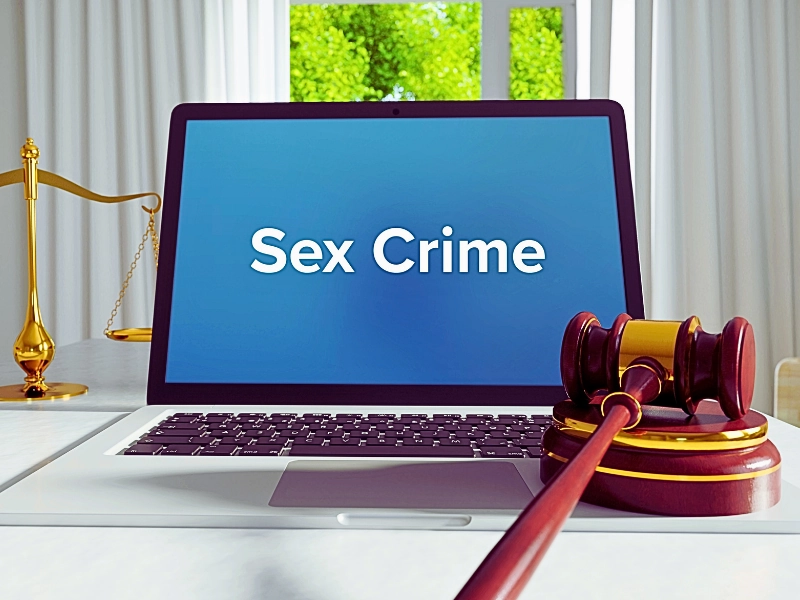Defendants convicted of a crime may ask, “What is the post-conviction process, and how long does it take?” A petition for post-conviction relief allows you to contest the legality of a criminal conviction or sentence following an unsuccessful direct appeal process or passing the appeal deadline. This petition involves legal issues not addressed at trial or direct appeal. These issues include a constitutional rights violation, newly discovered evidence, and inadequate or ineffective lawyer representation.

A petition for post-conviction appeal can be an ideal legal option when pursuing justice and relief from an unfair conviction or sentence. A criminal appeal lawyer can evaluate your situation to determine whether you have solid grounds for a post-conviction petition. If so, the lawyer will gather sufficient evidence and arguments to support the relief you are pursuing. The lawyer will maximize your odds of a favorable outcome by discussing how long the process takes and what you need to know about appealing your criminal case.
If you think you may be eligible for a post-conviction appeal in Minnesota, consult criminal appeal lawyers at Keller Criminal Defense Attorneys by calling (952) 913-1421.
Table of Contents
What Is Post-Conviction Relief?
A post-conviction relief petition is a legal remedy that enables you to contest your conviction or sentence at the end of a direct appeal or after the appeal deadline has passed. This petition deals with legal issues or fresh evidence not raised or admitted during the trial or the direct appeal proceedings.
A post-conviction relief allows you to present evidence-backed claims that the government violated your constitutional rights, that your attorney provided ineffective support, or that you have obtained new evidence that challenges the conviction or sentence. The objective is to get a favorable relief in the form of a new trial, commuted sentence, or dismissed charges.
The prosecution team must file a reply within 45 days after you submit your petition for post-conviction relief. The only exception is if the district court provides a different deadline. The court will start examining your appeal once the 45-day deadline elapses.
The court may not slate a hearing, even if you have requested one in your petition. The court may reject the petition without a hearing if it determines that you are ineligible for relief upon reviewing the petition and relevant documents of the trial proceeding. The court will then give a written order to support its decision to reject your petition without scheduling a hearing.
The district court will send you a notice by mail if it determines a hearing is necessary. The notice will contain the hearing date and time. The court may conduct the hearing through video or telephone rather than in a physical setting.
At the hearing, you will admit evidence and testimony to prove you qualify for the relief sought in your post-conviction relief petition. The prosecuting team will also get time to admit its own evidence and testimony and cross-examine you and your witnesses. You may get a chance to make oral arguments to support your petition.
Once the hearing concludes, the court will consider facts, evidence, testimonies, and arguments presented by both sides. It will then give a written order concerning your petition. The order constitutes a memorandum that outlines specific facts of the case, arguments made by both sides, and justifications for the decision made.
While the post-conviction statute does not set a timeline within which the court must rule on your petition, it requires the court to do so “promptly.” If you are not satisfied with the decision, you will have 60 days from the post-conviction order entry to appeal to the Minnesota appellate court.
How to Prepare for Your Post-Conviction Hearing
A post-conviction appeal is an area of law that can confuse someone with limited legal knowledge. It also involves procedures and timelines that could otherwise lead to the dismissal of your appeal on the grounds of a technical violation if not strictly observed. So, you must adequately prepare for your post-conviction petition and hearing to improve your chances of a successful appeal.
Consult a Criminal Appeal Lawyer
Criminal lawyers know who can appeal a criminal case and can help you prepare for the post-conviction hearing. They can streamline the process by handling different components of the appeal, such as determining grounds for appeal, analyzing and compiling relevant evidence, and presenting a robust case in court. They can offer advice on what arguments to make, how to conduct yourself during the hearing, and how to deal with any setbacks you may face.
Do Your Research
Start by carefully reviewing the hearing notice. Go through all the documents that accompanied the hearing notice to familiarize yourself with the case. Also, take the time to review your trial record, which comprises the trial transcript, statements of the case, and evidence admitted by both parties.
Study legal precedents by researching other cases with similar facts and evaluating them against yours. Doing that helps you avoid errors that may hurt your appeal.
Also, research laws and rules related to your case so you can argue from a position of knowledge.
Compile Relevant Evidence
Evidence is the cornerstone of a successful post-conviction hearing. So, gather as much evidence as possible to substantiate your argument. Evidence could include police reports, witness statements, transcripts of testimony, court records, and affidavits.
Consult With Expert Witnesses
Expert witnesses are a valuable resource in the criminal appeals process. If your lawyer has hired an expert witness for your case, talk to that expert before the hearing. The expert witness will guide you on how to be more persuasive in case you are required to testify during the hearing.
What Are Your Options for Appealing a Conviction?
The effect of a criminal conviction goes beyond legal punishments, such as fines and imprisonment. A conviction could lead to collateral consequences like job loss, professional license suspension or cancelation, and difficulty renting a house. A criminal conviction could even cost you your kids. Fortunately, Minnesota offers you options for appealing your conviction or sentence. These options include:
Direct Appeal
This appeal is basically the standard procedure of challenging your conviction for a criminal offense. You have a right to file an appeal with a higher court if you believe legal errors or negligent handling of your case could have resulted in an unjust conviction. The appeals court will review the case and may order a new trial, alter the sentence, or reverse the conviction if it finds major legal blunders in your case.
The appellate court may uphold the trial court’s decision if it finds no major issues in your case. The appellate court decision is usually final in 95% of about 2,400 appeals filed annually. In certain instances, however, you can appeal your conviction or sentence to the Supreme Court.
Post-Conviction Relief
A post-conviction relief is another option for challenging a criminal conviction in Minnesota. The purpose of this relief is to rectify constitutional or statutory violations that happened in your case.
You might have a valid legal basis for a post-conviction relief petition if:
- Newly discovered evidence shows that you are innocent
- The prosecution team concealed evidence that could have helped you avoid a conviction
- Your constitutional rights were violated during the criminal trial process
- Prosecution witnesses have confessed that their testimony at your trial was false
- Your legal representation at trial was inadequate or ineffective.
Habeas Corpus Relief
You may pursue habeas corpus relief if your detention in a state or federal facility is unlawful. This relief is not designed to determine whether you are guilty or innocent. Instead, it seeks to establish whether your detention is lawful.
Why Hire a Criminal Appeals Lawyer?
Criminal appeal lawyers are an essential investment for anyone contesting the legality of a conviction or sentence. A seasoned appeal lawyer can identify appealable issues in your case. The lawyer can, for instance, compare evidence presented at trial against evidence submitted before trial. Doing that will help the lawyer establish if there is evidence that should have been presented at trial but was not.
Your lawyer knows how to prepare and present a convincing legal argument before the appellate judges. The lawyer is also conversant with appellate procedures and deadlines. As such, the lawyer will follow these procedures strictly and manage the deadlines properly to avoid issues that may compromise your appeal.
Don’t allow an unjust conviction or sentence to dictate your future. Our criminal appeals lawyers at Keller Criminal Defense Attorneys are ready to assess your case and help you navigate the appeals process. Contact us today for a free consultation.





